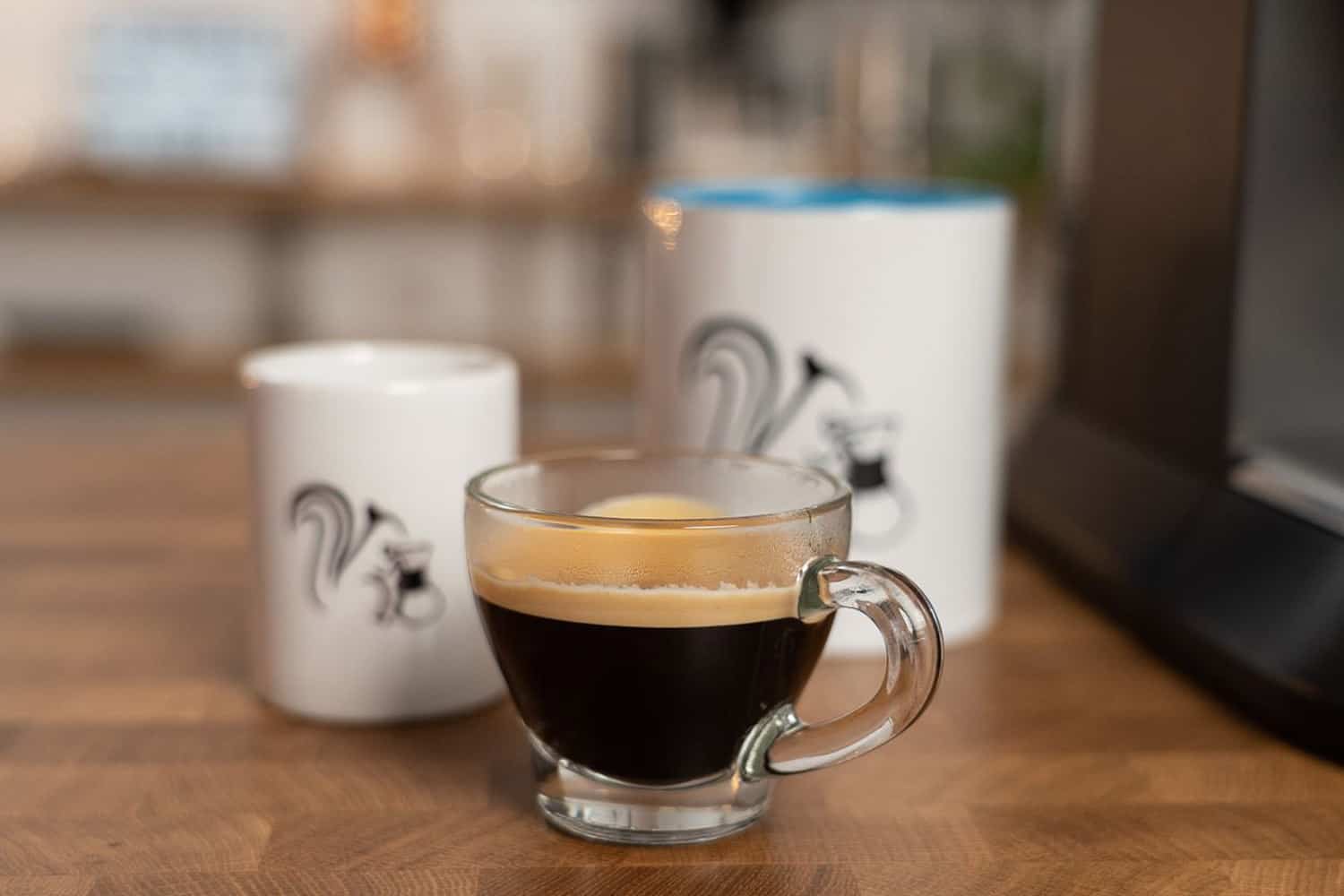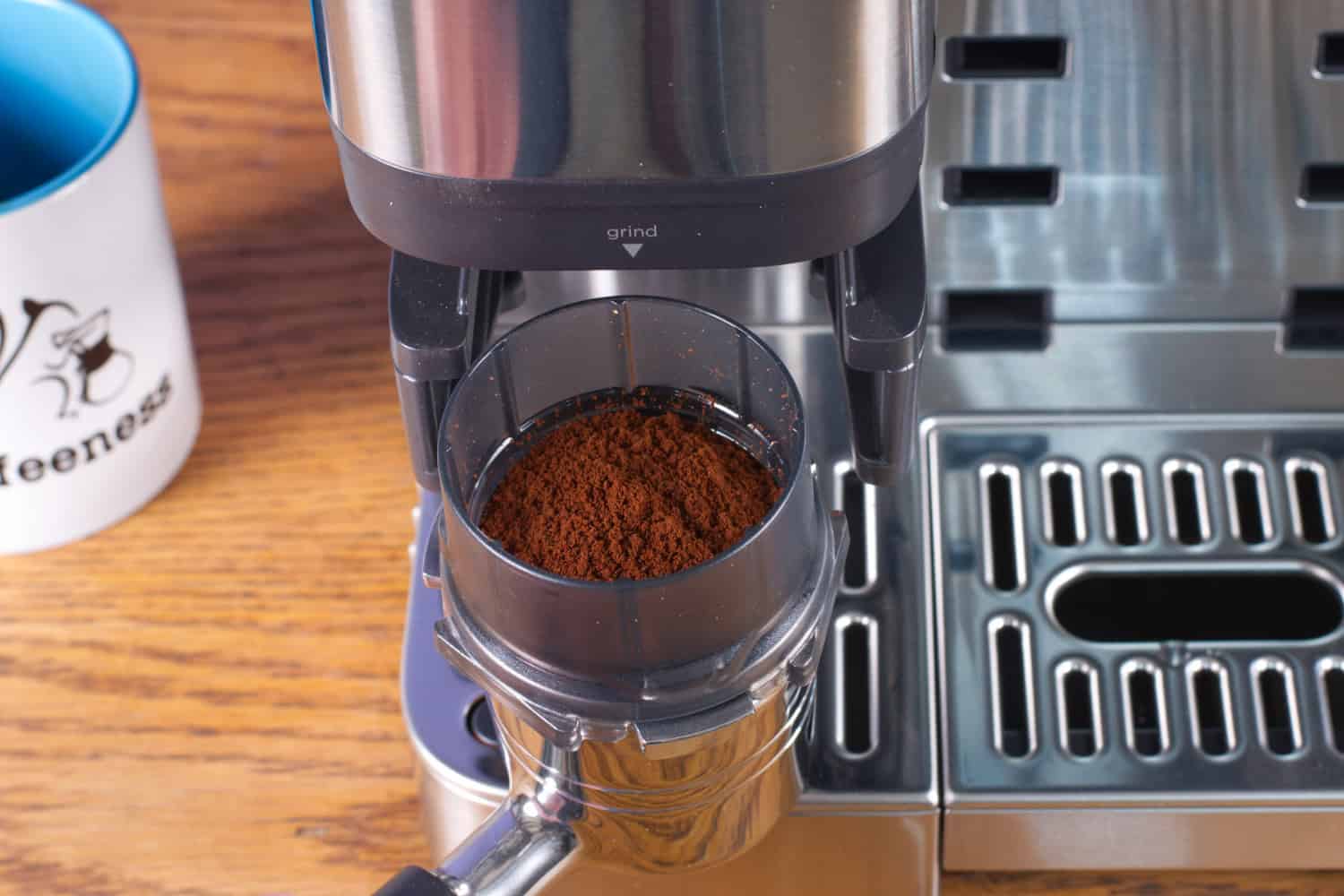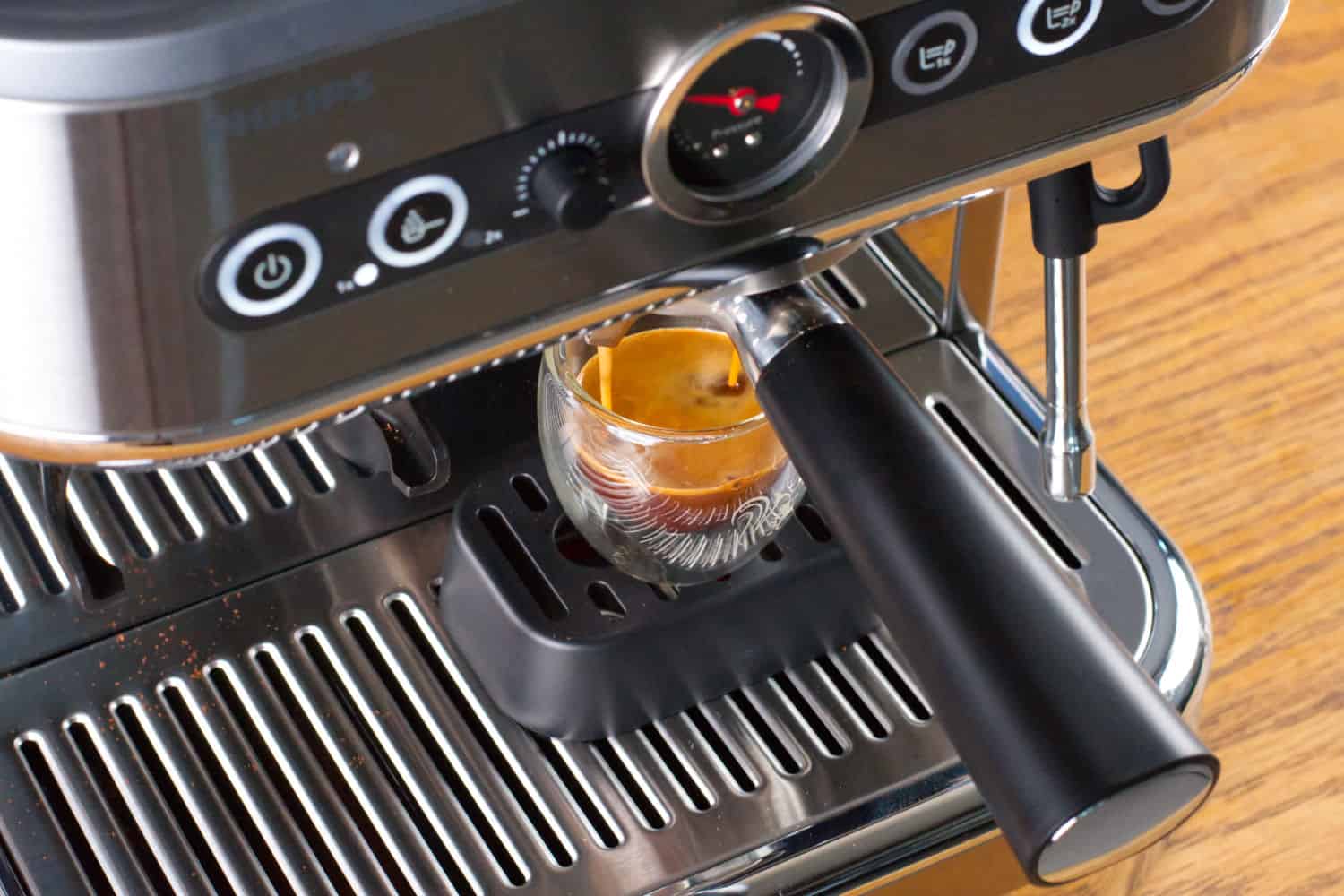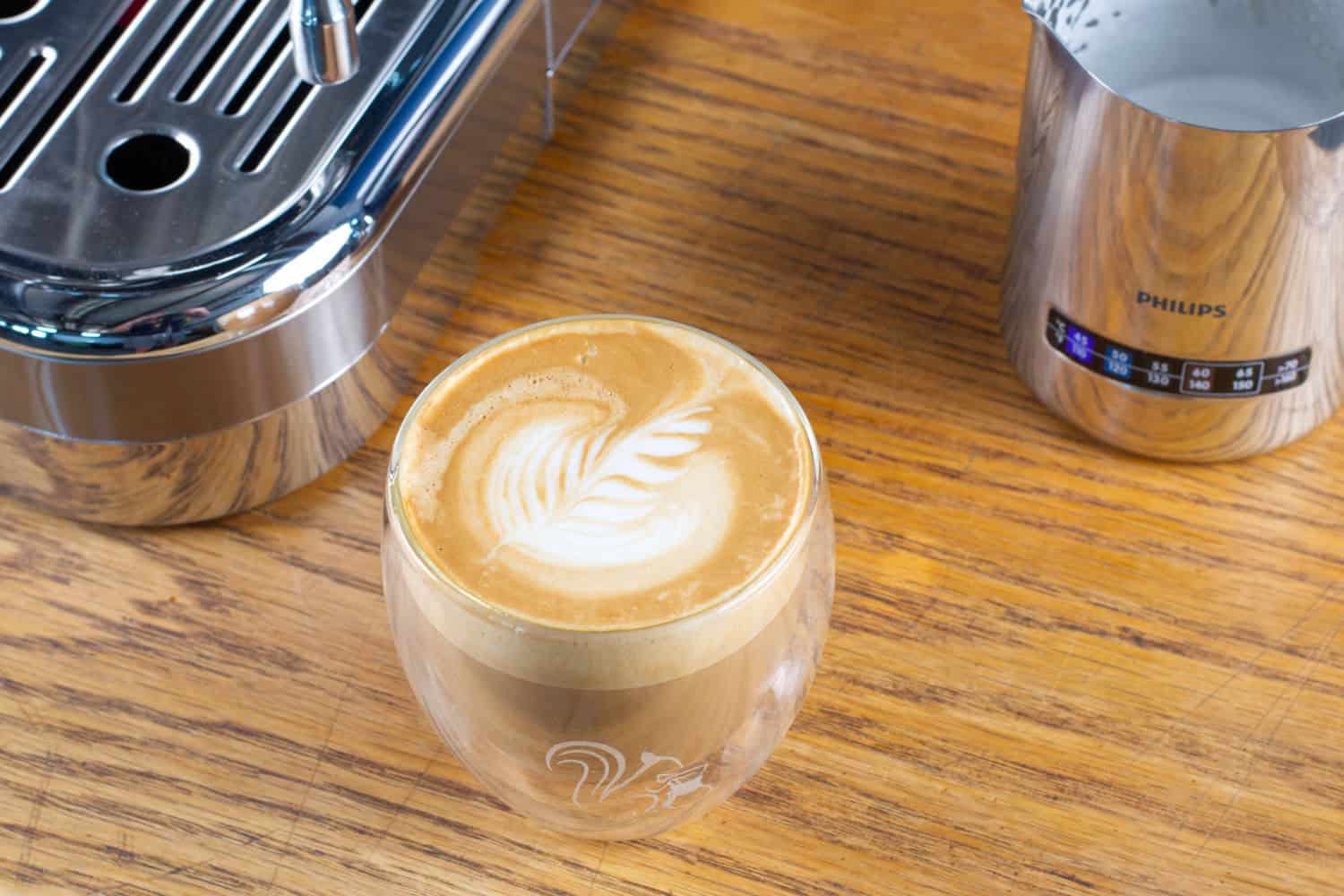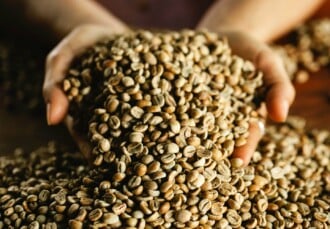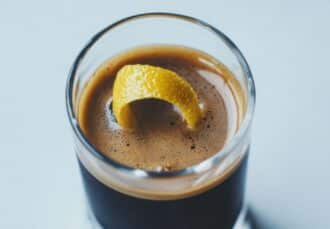Ever wondered why sometimes, your coffee tastes bitter?
While coffee naturally contains bitter compounds, when it’s overpoweringly harsh, something’s gone wrong. The good news is that this is totally fixable. Today, I’m pulling the curtain on the science behind your brew’s bitter side. More importantly, I’ll share simple tips to turn any bitter brew from punishing to phenomenal.
Table of Contents
How Should Good Coffee Taste?
Well-brewed java should have a beautiful balance of flavors. It should have sweetness, a rich body and pleasant acidity to brighten your palate. It should also feel smooth and inviting, through a pleasant mouthfeel.
Depending on the origin, you also might taste delicious notes of chocolate, berries, nuts or fresh herbs. You may even pick up rarer floral, wood, tobacco or spice hints.
Is Some Bitterness OK?
Now, more about why coffee tastes bitter. This may surprise you, but some bitterness is A-okay! After all, it’s a part of coffee’s character. Organic compounds, such as chlorogenic acid lactones, polyphenols, tannins (also present in wine), phenylindanes and naturally-occurring caffeine contribute to coffee’s bitterness.
What’s more, the darker the roast, the more bitter the brew. That’s because the more you roast coffee, the more you lose sugars while creating these compounds.
Think of it this way: bitterness in coffee should be a supporting actor and not the overwhelming lead.
5 Reasons Why Your Coffee Tastes Bitter
So, why does coffee taste bitter? As mentioned, a little bitterness is inherent.
But when a sip of your brew makes you wince, or immediately reach for sugar and cream just to make it drinkable, that’s your sign that something’s terribly off.
Let’s take a look at some of the common culprits.
Grind Size
One of the main reasons coffee tastes bitter lies in the grind size you’re using. When you grind coffee too fine for drip, pour-over or immersion methods, you’ll get bitter, muddy coffee.
The science behind this lies in contact times. As you brew, water extracts compounds from finer grounds aggressively, pulling out harsh tannins and oils, which should have otherwise stayed locked in.
To avoid this, always use the right grind setting for your chosen brewing method.
Coffee to Water Ratio
Too much coffee and too little water also throws things off balance, creating an extraction environment where bitter compounds dominate.
The sweet spot is a coffee-to-water ratio of 1:15 -1:17 for drip, pour-over and immersion methods. Stray too far from this, and you’ll over-extract bitter-tasting molecules that overshadow the acidic and sweet-tasting ones.
Extraction Time
Extraction time is another key factor for why coffee tastes bitter. This is because coffee extraction follows a predetermined sequence. First come the bright, acidic notes. Then, sweetness and balance, which govern mouthfeel and flavor. Last, come the bitter compounds.
When you brew coffee for too long, you skip right past the good stuff and jump straight into bitter territory.
Drip coffee brewed for 12 instead of 5-8 minutes? Bitter. French press coffee steeped for 10 instead of 4 minutes? You guessed it, bitter. Even with espresso. If your shot runs for longer than 30 seconds, I guarantee you those final drops will be bitter-tasting.
That’s why experts at the Specialty Coffee Association (SCA) have Gold Cup guidelines, and add their stamp of approval on SCA-certified coffee makers. These make it easier for homebrewers to stick to recommended brewing guidelines.
Extraction Temperature
Incorrect brewing temperatures can also determine why your coffee tastes bitter. As it happens, boiling water at 212 degrees Fahrenheit (100 degrees Celsius) is too extreme for most brewing. Instead, maintain an ideal water temperature between 195-205 degrees Fahrenheit (90-96 degrees Celsius). This range extracts coffee flavors efficiently without torching your grounds.
Coffee Beans
Not all beans are equal, and sometimes coffee tastes bitter before you even brew. Take for example Arabica vs Robusta; the latter contains more bitter compounds than the former.
The quality of your beans matters, too. Poorly processed coffee naturally contains higher levels of bitter compounds.
But it doesn’t stop there. Even high-quality beans stored improperly will oxidize and develop harsh, bitter notes. To avoid this, always store coffee beans in opaque coffee storage containers, and in a cool, dry place.
Stale beans lose their nuanced flavors and bitterness fills the void. So, always check for roast dates (not “best before” dates) on the packaging label. Aim for beans roasted within a 7-21 day window and always grind right before you brew.
Lastly, how you roast your beans matters. Darker-roasted beans (French and Italian) release more bitter compounds and oils than lighter-roasted beans. This is because during the roasting process, most of their sugars burn away, leaving behind primarily bitter carbon flavors. If you can’t abide this, stick to lighter roast profiles and the brewing methods that favor them.
Dirty Equipment
Rancid coffee oils and old grounds are another reason why coffee tastes bitter. When stubborn residue and oxidized coffee oils build up in your grinder, brewer or carafe, it contaminates every fresh batch or shot you make.
To avoid this, keep your brewing equipment on a strict cleaning regimen by:
Regularly brushing out grounds retained in grinder burr chambers, catch bins and chutes.
Occasionally using tablets to keep your grinder super-clean.
Backflushing your espresso machine as prompted.
Soaking and rinsing any components that come into direct contact with coffee grounds weekly.
Descaling your espresso machine and drip coffee maker as necessary.
Cleaning out carafes daily to remove stubborn coffee oils.
Other Ways to Reduce Bitterness in Coffee
At some point in your coffee journey, you’ll find yourself brewing a bitter batch. It’s happened to me and is sure to happen to you! Rather than throwing this coffee away, here are some tips and tricks to help you rescue your brew:
Salt
This sounds wild, but trust me, it works if your coffee tastes bitter. Adding salt to a just-brewed batch of poorly-processed coffee or instant coffee reduces bitterness. In fact, some coffee enthusiasts actively brew pour-over with pre-prepared saline solution for enhanced flavor!
But how does this work on coffee that tastes bitter? Salt doesn’t just season but actively blocks bitter taste receptors on your tongue, making your coffee taste smoother.
Dairy and Non-Dairy Fats
Fats are literally bitterness buffers. Cream, milk, half-and-half and even nut milk mellow coffee’s harsh flavors while adding body and richness.
If you’re into keto, you’ll know that butter or MCT oil in bulletproof coffee does triple duty, creating a less bitter yet creamy, frothy brew while keeping you in ketosis.
But what’s the science behind this? It’s pretty simple, really. The fat molecules literally bind to coffee’s bitter compounds, preventing them from hitting your taste buds with full force. As such, your coffee tastes markedly more indulgent and significantly less bitter.
Flavor Enhancers
Flavor enhancers can work to improve flavor if your coffee tastes bitter. A dash of vanilla extract, pump of caramel syrup or sprinkle of cinnamon introduce sweetness and aromatic compounds that balance and mask bitterness.
Does My Brewing Method Make a Difference?
Here’s a big one: Coffee tastes bitter thanks to your chosen brewing method! While this may surprise you, some methods naturally produce less bitter results. Others require careful attention to avoid harshness.
Cold Brew
Cold brew is famous for being incredibly smooth, low-acid and less bitter. As it entails steeping coarse grounds in cold water over 12-24 hours, flavor compounds extract slowly and selectively. Many of coffee’s bitter compounds, which require sufficient heat to dissolve, remain behind.
What you get instead is a concentrate that’s naturally sweet, chocolatey and mellow. This is why cold brew converts even the most ardent coffee haters!
Nitro Cold Brew
Another method to try if you hate bitter coffee is nitro cold brew. It takes cold brew and infuses it with nitrogen gas, creating a gorgeous cascading effect and creamy texture, similar to beer. The bitterness advantage here is twofold: first, you already have a smooth cold brew as a base. Second, those tiny nitrogen bubbles create a velvety mouthfeel, making the coffee taste sweeter and smoother.
Flash-Brewed Coffee
The Japanese also have making less bitter coffee down. Flash-brewed coffee brews hot coffee directly onto ice, reducing bitterness in three ways:
A shorter brewing time (shorter than traditional hot methods) limits extraction.
As soon as the hot coffee hits the ice, it immediately stops extracting, avoiding bitter territory.
Rapid cooling locks in coffee’s bright, fruity flavors, while preventing the extraction of bitter compounds.
Slow Drip Coffee
Kyoto slow drip, works slightly differently to reduce bitterness. Ice-cold water drips through grounds one drop at a time,sometimes, over a period of 3-8 hours.
Like cold brew, the lower temperature prevents excessive extraction of bitter compounds,as each water droplet has minimal contact time, extracting only the most delicate, sweet coffee flavors. The result is a clean, tea-like coffee that tastes like liquid silk!
Chengdu Temp Shock Coffee
Lastly, why not opt for the new kid on the block, the Luna Cafe’s viral Chengdu temp-shock coffee. This Chinese invention isn’t your typical iced latte, but a novel solution if your coffee tastes bitter.
The barista pours hot espresso over sweetened, cold Eisbock milk, in an ultra-chilled glass. This produces a gorgeous, layered “dirty coffee” effect, where hot meets freezing cold.
Crucially, this flash-freeze brewing doesn’t give bitter compounds time to fully develop. On drinking, you experience hot and cold simultaneously, dulling your bitter taste receptors. It’s coffee theater, science and deliciousness all in one viral-worthy glass!
Final Thoughts
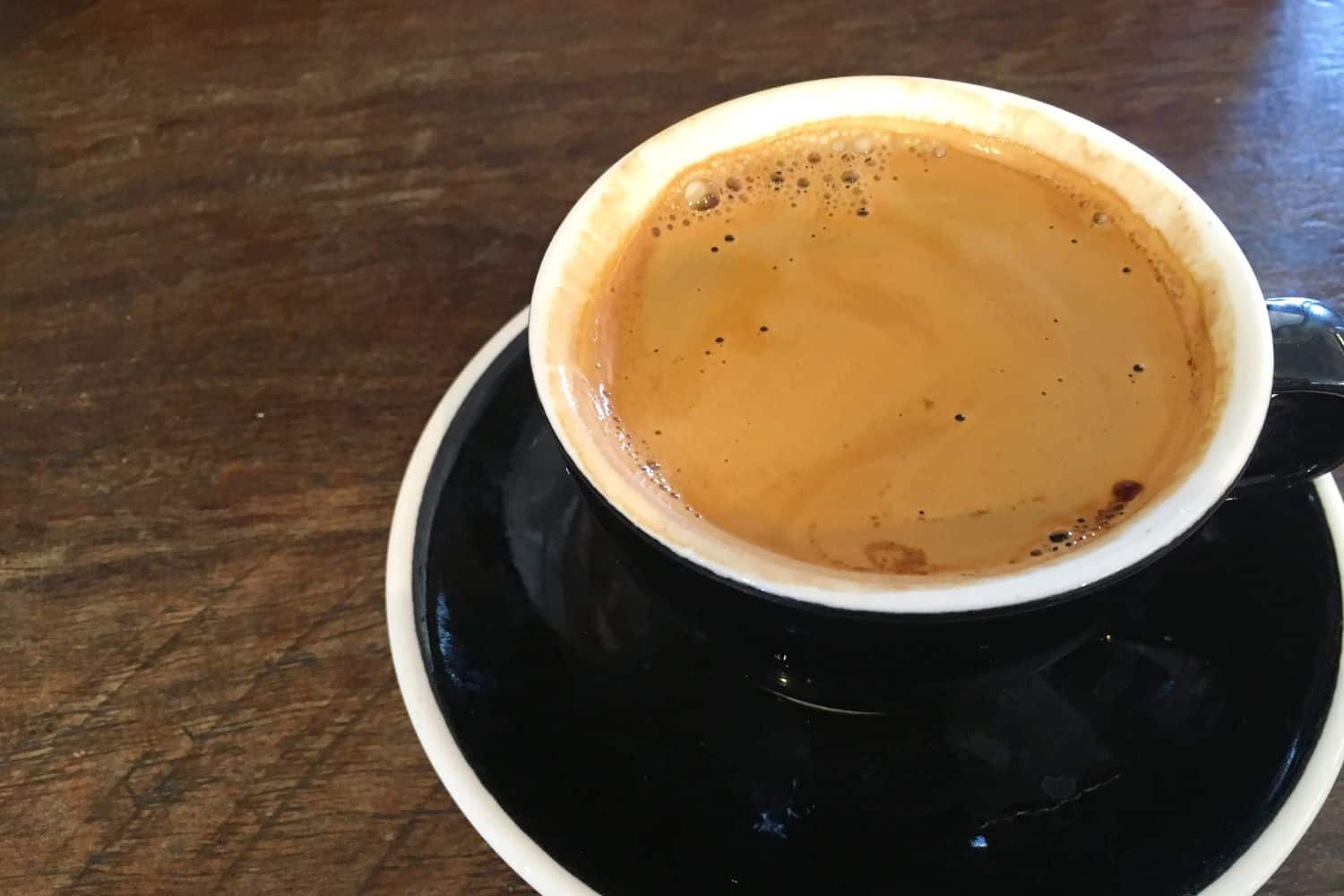
So there you have it – why coffee tastes bitter and, more importantly, how to control it!
While some bitterness in coffee adds character and depth, it’s the overwhelming kind we should aim to avoid.
Fresh, high-quality beans, dialing in your grind size correctly and brewing using clean equipment are good starting points. You may also choose gentler methods like cold brew to keep on the right side of coffee’s bitterness.
What’s your biggest coffee bitterness challenge? Have you tried any of these fixes, or do you have your own secret trick? Drop a comment below and let’s swap brewing tips.
Bitter Coffee FAQ
Your coffee tastes bitter if you likely used too fine a grind, a long brewing time, the wrong coffee-to-water ratios, dirty equipment, water that’s too hot or over-roasted/stale beans.
Absolutely! Bitter coffee doesn’t taste great but won’t harm you.
Robusta beans are naturally more bitter. Also, dark-roasted, over-extracted, stale and instant coffee tends toward bitterness.
